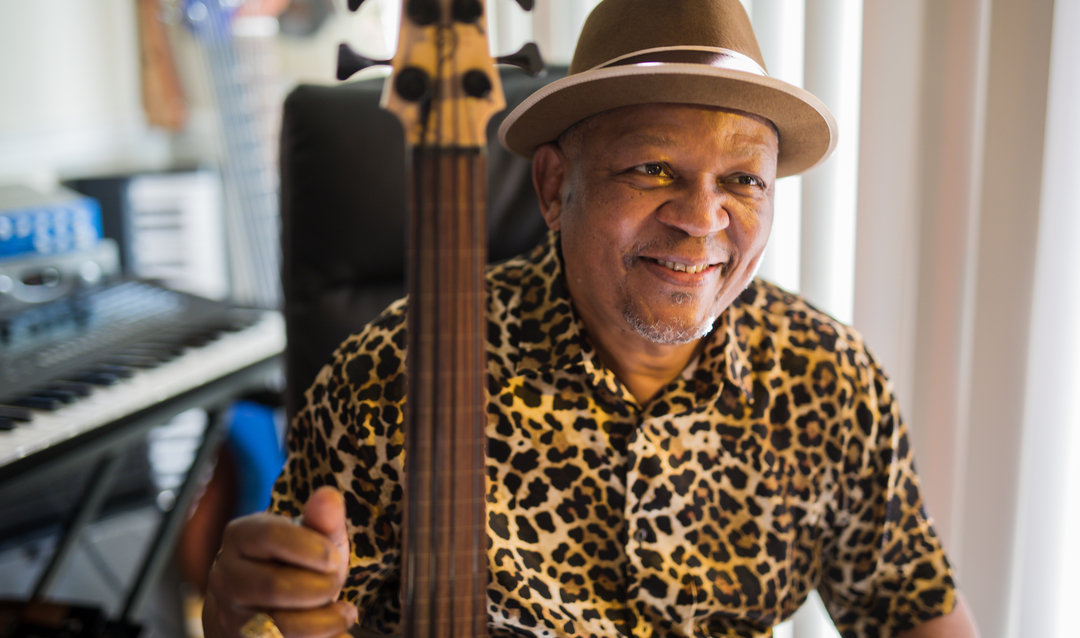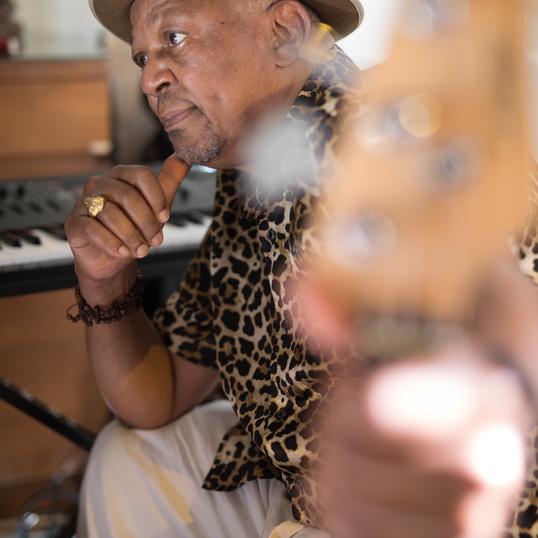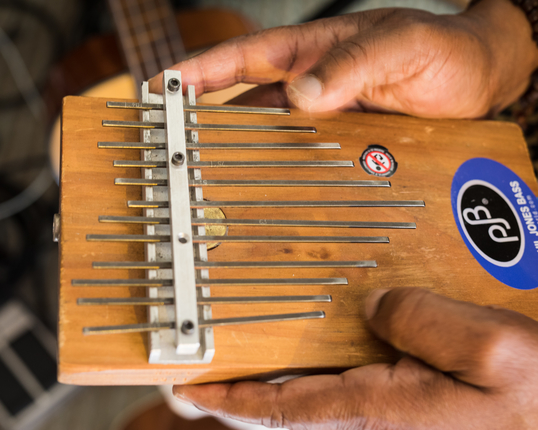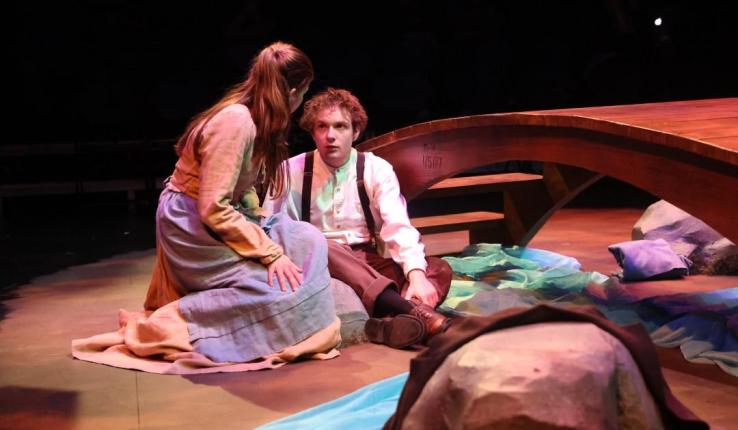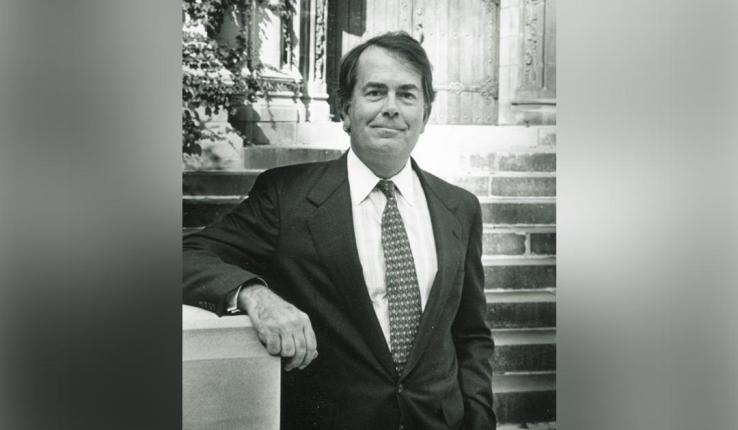Kumalo demonstrates a kalimba.
“The most important thing about working with these kids...they’re unbelieveable,” said Kumalo, in a video created mid-way through the program. He congratulated the students, describing them as having “great talent” and being easy to work with.
“It’s been really amazing,” said Kumalo. “We’re working together online to talk about how to practice, what songs we have to play, and what they have to work on. I open my time to them so that they can talk to me any time so we can get this music together. I’m really, really happy about these kids. They’re the future. We have to help them to be the best, to be better than us, and of course, they love to play music.”
Tahya said the artist mentors empowered the aspiring young musicians to make suggestions, improvise and come up with ideas about songs.
“I’m glad for this,” said Ramona Slabonik, in the video. She plays the violin.“The experience participating in this mentorship has inspired me to continue my musical pursuit.”
Student Donovan Fitzgerald-Adkins, also a violin player, described the program as “a lot of fun. I’m learning a lot about improvising, especially in a large group of people, and I’m learning a lot about playing different styles of music and playing with different instruments than I’m normally used to, like saxophones."
For more information about the Music Master Mentor Program, view the video below.


